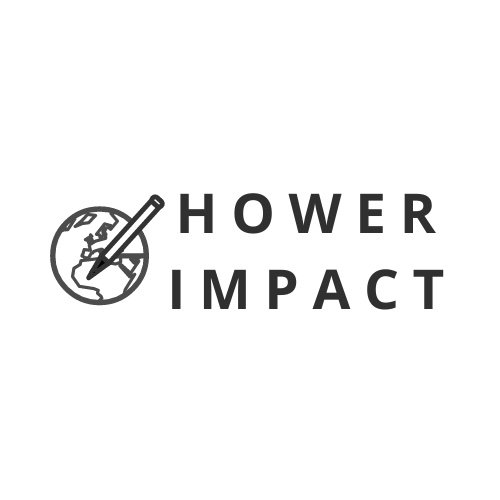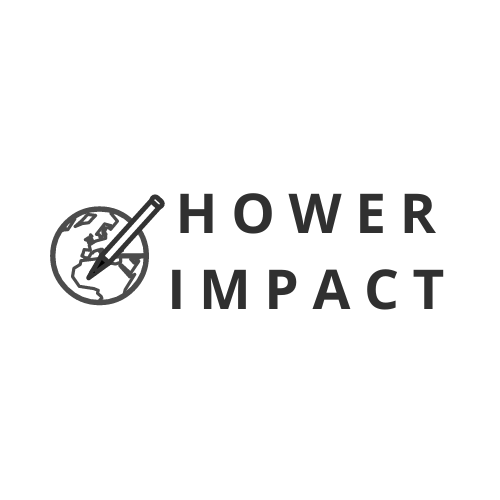A pep talk for aspiring ESG professionals
Finding a job in ESG isn’t easy despite the recent boom. Here’s why you need to keep going.
In 2022 and beyond, the need for environmental, social and governance (ESG) expertise will continue to grow as businesses double down on improving their social and environmental performance. Yet despite the increasing demand for ESG talent, countless aspiring ESG professionals find themselves benched and overlooked. Perhaps you’re one of them — a recent graduate just starting out, or a more seasoned professional looking to pivot into an impact career.
Finding that first ESG job has never been easy, as I recounted five years ago in GreenBiz. Unlike more traditional careers in law, finance, medicine and marketing, there are few linear paths into ESG. While the sector is maturing, barriers to entry remain high, confusing and often unfair.
To many, it feels like waiting outside of an exclusive club where those with full-time ESG roles hang — with a big, mean bouncer blocking entry. Having stood in the same line myself, I empathize with those standing outside — and frustration that the club even exists. If we want to address the world’s ESG challenges, we need to foster a functional, inclusive system for cultivating and recruiting ESG talent.
While I can’t change the status quo, I can offer a helping hand — as countless others have done for me — to help you get by that bouncer. Perhaps when enough of us have made it inside, we can break down the doors for all.
Disclaimer: I’m no career coach — just someone who cares. To address the climate crisis and other pressing ESG challenges, we need to recruit the best minds and biggest hearts. Each time an aspiring ESG professional gives up after a frustrating and fruitless job search, we lose talent critical for creating a more prosperous planet.
The ESG careers market failure
As part of my efforts to walk my talk, last year I launched “ESG office hours” — an open invitation to current and aspiring ESG professionals to share ideas, troubleshoot challenges and offer honest career advice. Over the course of a couple months, I met with dozens of folks struggling to find their way into ESG. When coupled with countless conversations with my Fortune 500 clients about an inability to fill open roles, I realized that corporate sustainability is facing a total market failure in terms of matching talent with opportunities.
This compelled me to create a LinkedIn post on the topic, which seemed to strike a chord — it generated nearly 100,000 views, 1,300 likes and 166 comments. The post took on a life of its own as countless current and aspiring ESG professionals shared their struggles in overcoming the many barriers to securing a role.
One commenter wrote:
“Thank you for posting this. You just described my last two years of trying to get into corporate sustainability. I had to pivot my path. Hope recruiters and hiring managers read this.”
Another posted:
“I love this post and it's spot on! I've encountered many of these difficulties during my two year job search trying to rejoin the corporate sustainability sector. There is an abundance of talent being overlooked at a time when corporate sustainability has never been more important!”
Someone else commented:
“Rightly said. Perfection cannot be defined, it can only be pursued! It's an ever going dynamic process with scope of improvisation every moment. We should encourage individuals who have the learning streak and can bring diversity to the team.”
A recent graduate wrote:
“Thank you for the insight Mike! I’ve done over 400 applications over the course of two months, all in sustainability. I just got my Master’s degree in August. I’d love some feedback on my resume at this point, I’m not sure what I’m doing wrong. It’s very hard right now!”
Here comes the pep talk
If you’re having a tough time finding an ESG job, keep on going. While it’s lonely, exhausting and maybe even a little embarrassing to try and fail to find that which you want most — especially when it seems as if so many others have already found it — know that you aren’t alone.
Think about your “ESG personal legend.” In Paulo Coehlo’s novel, The Alchemist, he describes a "personal legend" as an individual’s calling — that which awakens a deep desire and passion to live with a sense of purpose for something greater than yourself.
What is it that makes you come alive? Is it crunching data? Organizing projects? Devising strategies? Telling stories? Having a clear understanding of what within your heart motivates you will allow you to foster the personal sustainability needed to face the failures ahead. And this resilience will serve you well once you’ve landed that ESG gig — working in sustainability is even harder than trying to work in sustainability.
Cultivate a strong professional network by reaching out to folks you admire and ask to learn from them. Seek out some of the proliferating ESG career resources, such as Sustainable Career Pathways (created by my brilliant friend Trish Kenlon) and Ed’s Job List (curated by my sustainability buddy Ed Carley). Look for ESG-focused professional networks in your community — and if one doesn’t exist, create one.
And remember — while the world needs you, it doesn’t owe you a damn thing. No amount of education or pedigree entitles you to an ESG job. You will encounter folks who found an ESG job with little trouble right out of school, as well as those who stumbled into one. Some might even be haughty about it. As you put your best foot forward, some people will think you are great, while others not so much. Don’t let this get to you. Stay humble. Your journey is your own. Absorb constructive feedback and repel unhelpful criticism. Believe.
While some say to work smarter than harder, I challenge you to work smarter and harder. Visualize and don’t romanticize the impactful role you desire. Dream jobs don’t exist — only roles that help us to realize our dreams. And as you live each day, trying, failing, learning and growing, you will discover unexpected opportunities which will take you one step closer.


